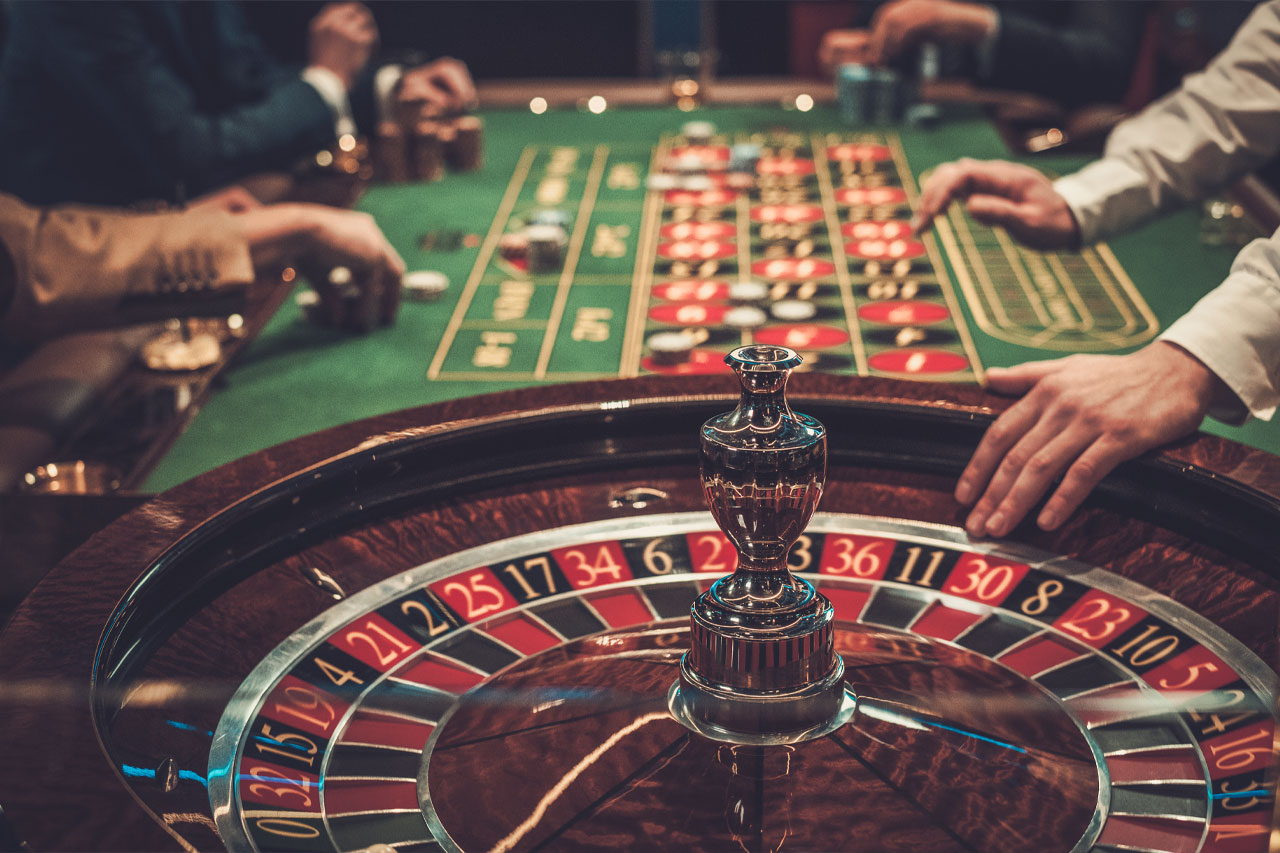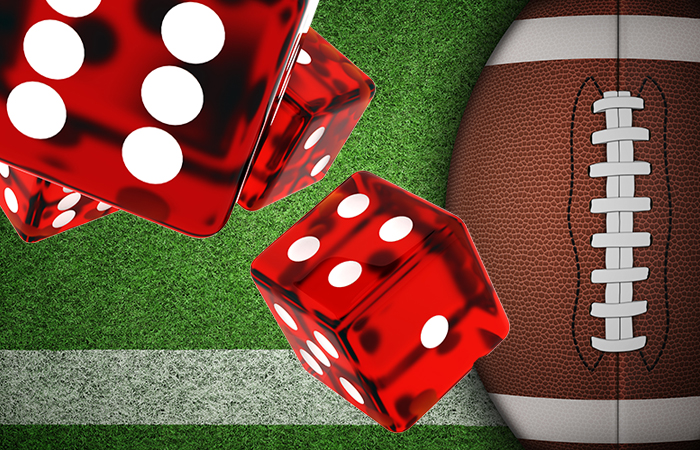Compulsive gambling, also referred to as gambling disorder or gambling addiction, is the uncontrollable urge to gamble despite the repercussions. Gambling means you’re willing to risk something that you consider to be valuable in the hopes of winning something that’s even more valuable. Like a drug or alcohol addiction, compulsive gambling can have a severe impact on your health, relationships, and especially your finances. Also, like people addicted to drugs or alcohol, compulsive gamblers may attempt to hide their problems from their loved ones. If you suspect that your loved one has this issue or simply want to be aware, just in case, below are the most common signs of gambling addiction.
10 Signs of a Gambling Addiction
Compulsive gambling is also known as a behavioral addiction because it’s characterized by a strong impulse to partake in a specific behavior. An individual officially has a behavioral or process addiction when they continue to engage in the behavior despite the toll it takes on their emotional, interpersonal, or physical well-being. Behavioral addictions don’t involve drugs or alcohol but rather behaviors that produce a natural reward or an emotional high. However, as with substance abuse, people with gambling addiction or other behavioral addictions engage in certain behaviors because they activate the release of dopamine in the brain, producing a feeling of pleasure or a “natural high.”
Gambling is common, with 86% of adults in the United States partaking in the activity at some point in their lives, and 52% reporting lottery gambling in one year.1 With that being said, gambling addiction doesn’t happen accidentally but is rather based on the principle known as a Variable Ratio Reinforcement Schedule (VRRS), in which mood-stimulating rewards are variable and unpredictable. There are signs of being addicted to gambling that someone with this condition may exhibit. Below are 10 signs of gambling addiction in adults to look out for.
1. You lie about your gambling habits
One of the most common early signs of gambling addiction is lying. Lying to hide addiction or addictive behaviors is normal. When it comes to gambling addiction, the urge or compulsion to gamble is so strong that the individual will do almost anything to place that next bet or buy that next lotto ticket. However, they’ll do everything they can to hide what they’re doing and how they’re spending their money. Pathological gamblers often lie to themselves, a psychological process known as cognitive dissonance. This refers to when a person experiences psychological discomfort when they behave in a way that conflicts with their values or beliefs. In order to reduce this discomfort, you’d have to cease the behavior causing it. However, compulsive gambling isn’t logical, so this isn’t really an option for someone who struggles with it.
Instead, people with gambling addictions will begin lying to themselves and rationalizing their behaviors, even if their reasons are false or don’t make any sense. In other words, compulsive gamblers will lie to themselves to ease this psychological discomfort, which is caused by their behavior.
2. You gamble more than you can afford
A person who gambles casually may spend some of their extra cash on gambling. When they’re losing more than they’re gaining, they’re willing to quit. Compulsive gambling, on the other hand, is characterized by the inability to control or stop gambling even if you continue losing more money than you can afford. A person with a gambling addiction may be so consumed by the thrill of the possibility of winning that they may fail to realize how much they’re losing.
However, losses in gambling impact more than a person’s finances. As with any addiction, keeping up the habit takes time out of your day. As the addiction worsens, more time is spent on the habit while other areas of your life are neglected. Relationships, school, work, socializing, all of these areas are affected when a person suffers from compulsive gambling.
3. You borrow money from others to gamble
Another major sign that you have a gambling addiction is borrowing money to gamble. Gamblers will use up their normal ways of borrowing money, such as a line of credit, bank loan, or even a second mortgage, until they rack up debt. Once these means have been exhausted, they may resort to high-interest loans, such as credit cards, payday loans, or even seek the help of illicit loan sharks.
4. You gamble until you run out of money
If the person doesn’t seek help, the compulsive need to gamble becomes so strong that they stop caring about how much money they’re losing altogether. At the end of the day, they may only focus on how much they would win. At this point, losing money won’t stop their behavior. Going broke and racking up serious debt is a risk for someone with a gambling addiction.
5. You feel guilty or ashamed about gambling
Compulsive gambling also affects you emotionally. Like other forms of addiction, many people with gambling disorders use it as a coping mechanism to manage negative emotions or escape from their stressors. Even if someone uses gambling to avoid their emotions, the behavior itself can also contribute to these feelings by causing shame and guilt.
Gambling is addictive because it causes the release of dopamine, a chemical messenger that plays a role in pleasure and reinforcing rewarding behaviors. In other words, gambling can make someone feel good for a little while, providing temporary relief from negative emotions. The gambling activities themselves also provide a temporary distraction from the person’s stressors or negative emotions. However, as with drugs, when gamblers aren’t gambling, they may feel low, sluggish, and even depressed. Eventually, gambling may become their only source of relief from their emotional discomfort.
6. You attempt to recover losses by gambling more
Continually attempting to recover your losses from gambling by gambling is a common feature of gambling addiction known as “chasing.” As the person continues to lose, they may tell themselves, “the next one for sure,” no matter how many losses they experience. To them, the next bet is always the big one, the money maker. This is a strategy that many compulsive gamblers cling to as they attempt to recover from their prior losses. Also, in addition to how gambling affects the brain, it’s the belief that the next one is the big one that drives compulsive gamblers to keep gambling no matter what’s at stake.
7. You’re obsessed with gambling
As you may have guessed, gambling disorder is a condition of obsession-compulsion. The obsession with betting and the chance of winning can create anxiety or emotional discomfort, which can only be relieved by the compulsion: gambling. By repeating this cycle, the individual eventually comes to the conclusion that obsessive gambling is the cure for their discomfort and anxiety.
When a person is obsessed with something, it also takes over their thoughts. Therefore, a person with a gambling addiction becomes so obsessed that they constantly ruminate about their previous gambling and think of little else except for the next time they can place a bet or play the lottery. Eventually, it becomes harder and harder to focus on their responsibilities, affecting their career and relationships.
8. You steal money from loved ones to continue gambling
A real sign that you’ve hit rock bottom with any addiction is when you steal from others to fuel it. Once a gambling addict has exhausted all of their monetary resources, they may resort to crime to support their habit. This may involve stealing from their spouse, family, friends, or work. However, it can also lead to criminal activity like robbery, fraud, and embezzlement.
9. Your loved ones have tried to talk to you about your problem
Despite your attempts to cover up your gambling problem, your friends and family may eventually catch on. When this happens, they may express their concerns, which most gamblers may deny. However, as the problem becomes more severe, spouses, family, and friends may become more insistent about getting help. Unfortunately, many loved ones of addicts struggle to understand why the person can’t “just stop.” This misunderstanding can lead to more forceful conversations, which may be interpreted by the individual as nagging. They may push their loved ones away in an attempt to avoid these conversations.
If you want to help someone with a gambling addiction, it’s important to never be forceful. As hard as it may be, the best way to reach people who are struggling with addictions is to express your concern and let them know that you’re there for them no matter what. Be willing to patiently listen to their struggles and needs.
10. You can’t control your gambling
Another sign that you’re addicted to gambling is that you simply can’t stop gambling. Ultimately, gambling addiction is defined by the inability to control or stop this specific action. People who are affected by this condition just can’t stop gambling. Compulsive gamblers may attempt to cut back or stop this behavior and may even succeed for a while. However, because it’s a legitimate condition, they may always revert back to their old ways. However, stopping compulsive gambling isn’t about willpower but rather about getting the help you need. There is treatment available to help people with gambling disorders recover and regain control of their lives.
If you or a loved one is addicted to gambling or battling a substance abuse disorder, Behavioral Health of the Palm Beaches can help. We have a team of experts and extensive experience in treating substance abuse disorders, co-occurring disorders, and behavioral addictions. Our drug rehab in Palm Beach
offers gambling addiction treatment to specifically combat the aspects of this condition.
To learn more about our gambling treatment or other mental health programs, call BHOPB today at 561-220-3981 to speak to one of our team members.
Related Reading:
How to Stage an Intervention for a Gambling Addict
Source:













